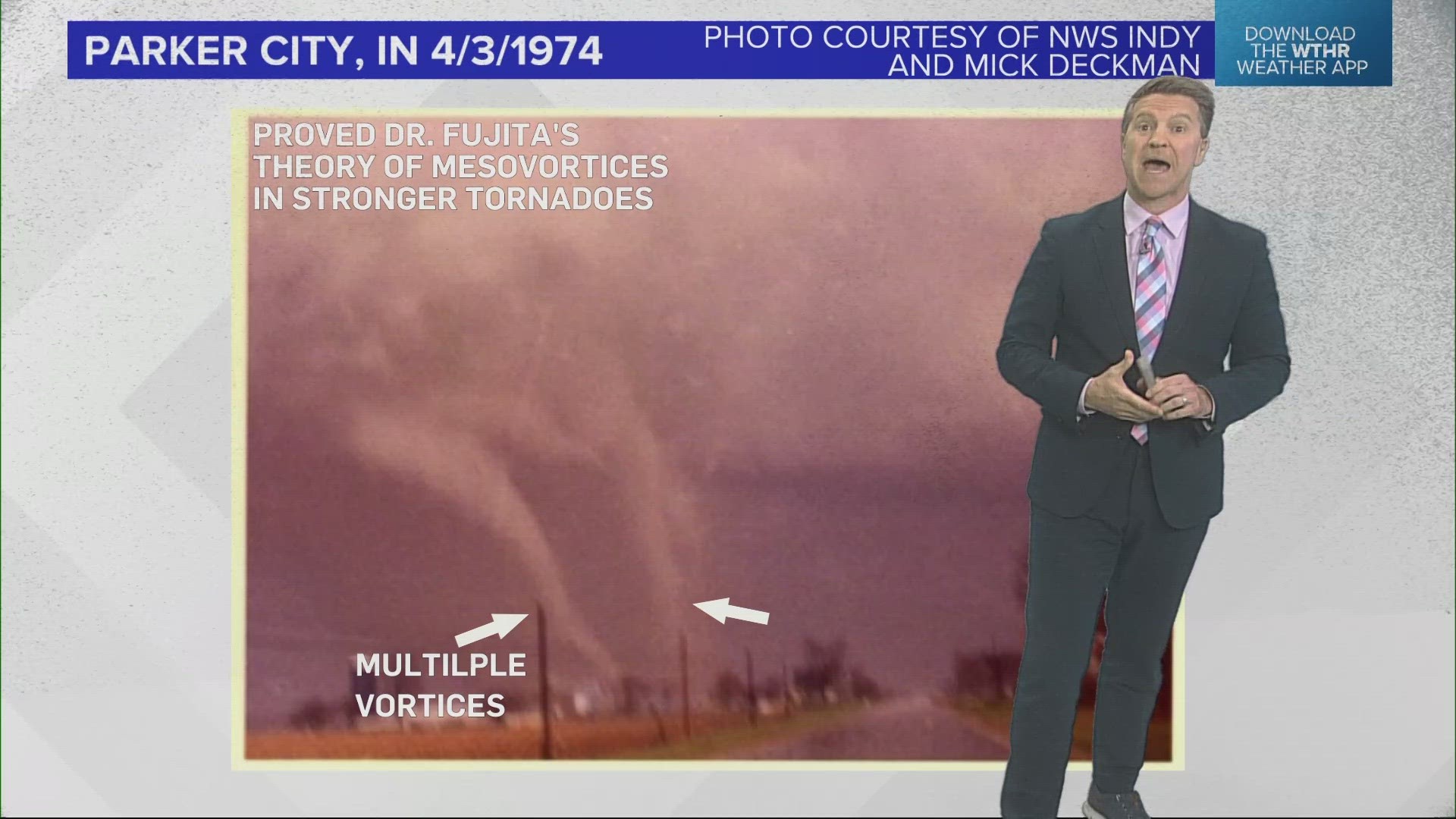INDIANAPOLIS — As a kid growing up in Louisville, Kentucky, the dates April 3rd and 4th have much meaning. I was only in diapers, but heard stories of how my grandmother protected me with a couch as tornadoes missed our location southwest of Louisville. As I grew older, my knowledge of the destruction and death of those days in 1974 grew, as I read through the pages of this book by the Courier-Journal in Louisville.

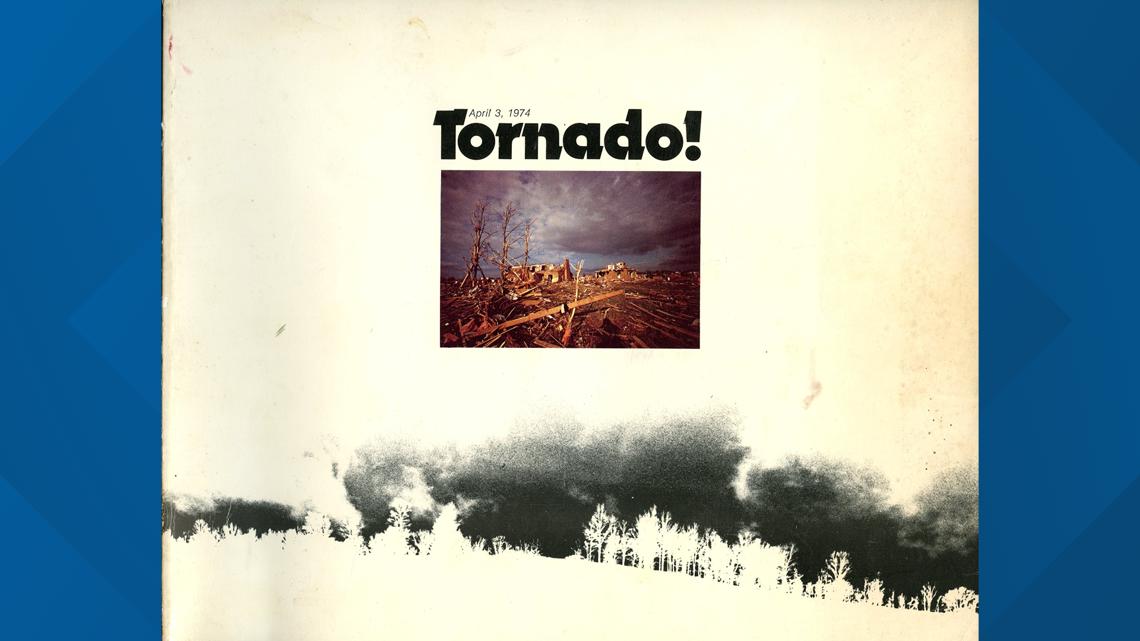
The events that took place 50 years ago eventually triggered my fascination with severe weather and would inspire me to study meteorology.

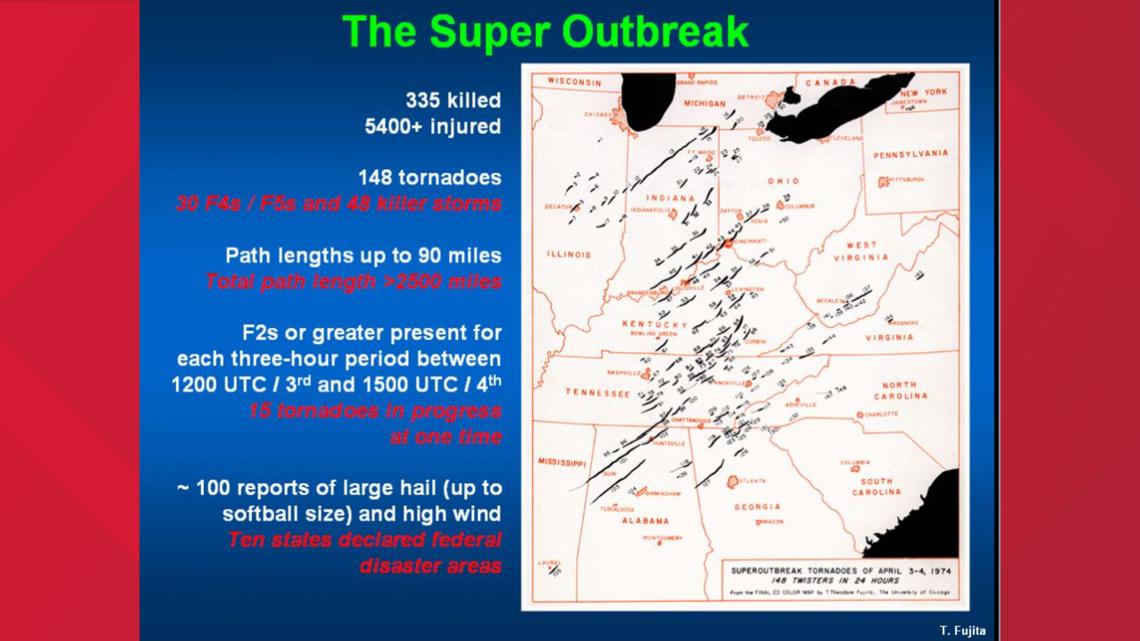

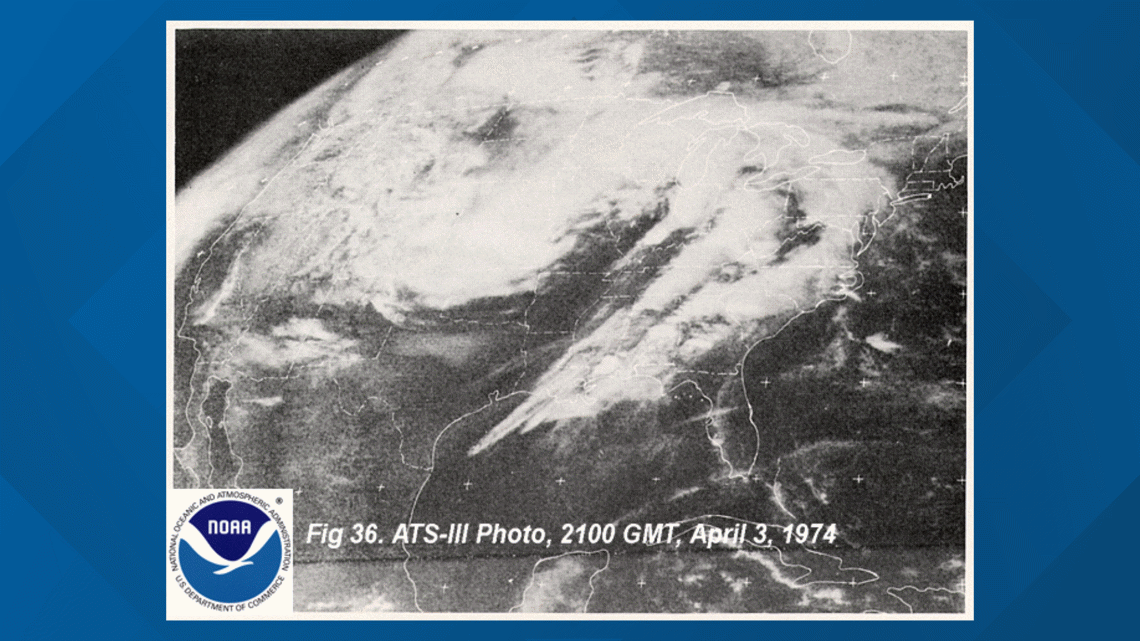
Wednesday marks the 50th anniversary of what's known as the April 3-4, 1974 Super Outbreak. A powder keg of weather elements delivered not only a high volume of tornadoes, but it produced a high volume of violent tornadoes.

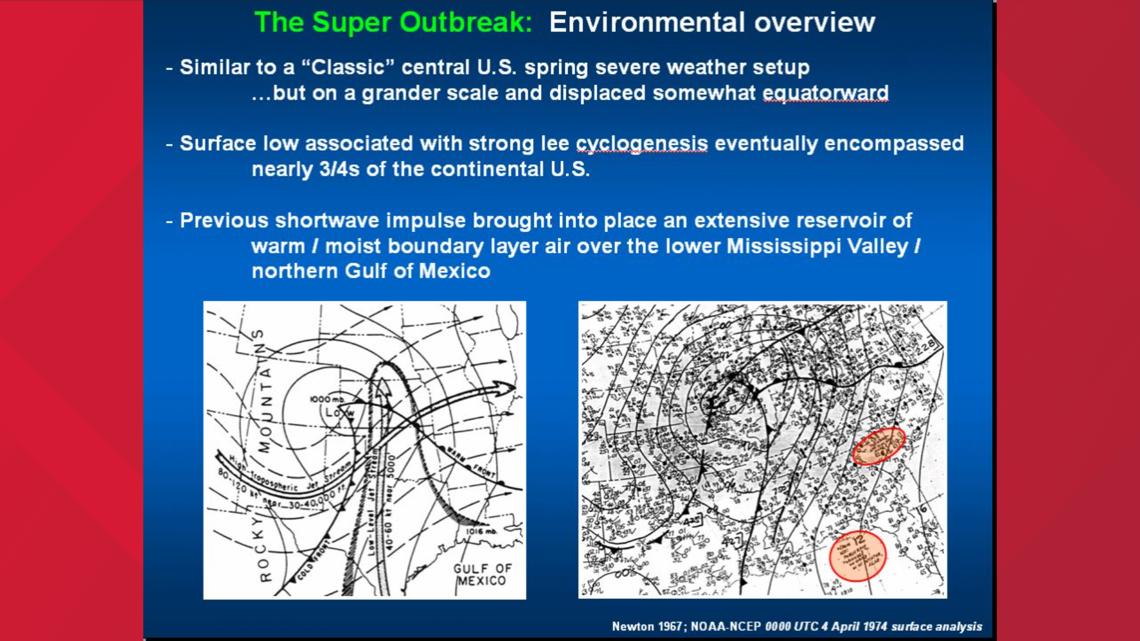
In all, 148 twisters impacted 13 states and also parts of southern Canada. Of those, 23 were rated F4 (the EF scale wasn't implemented until February 2007) with an astounding number of seven F5 tornadoes in a mere 17 hours. The seven F5 tornadoes from the Super Outbreak account for 12% of the 59 that have occurred since 1950 - easily the most in one day.

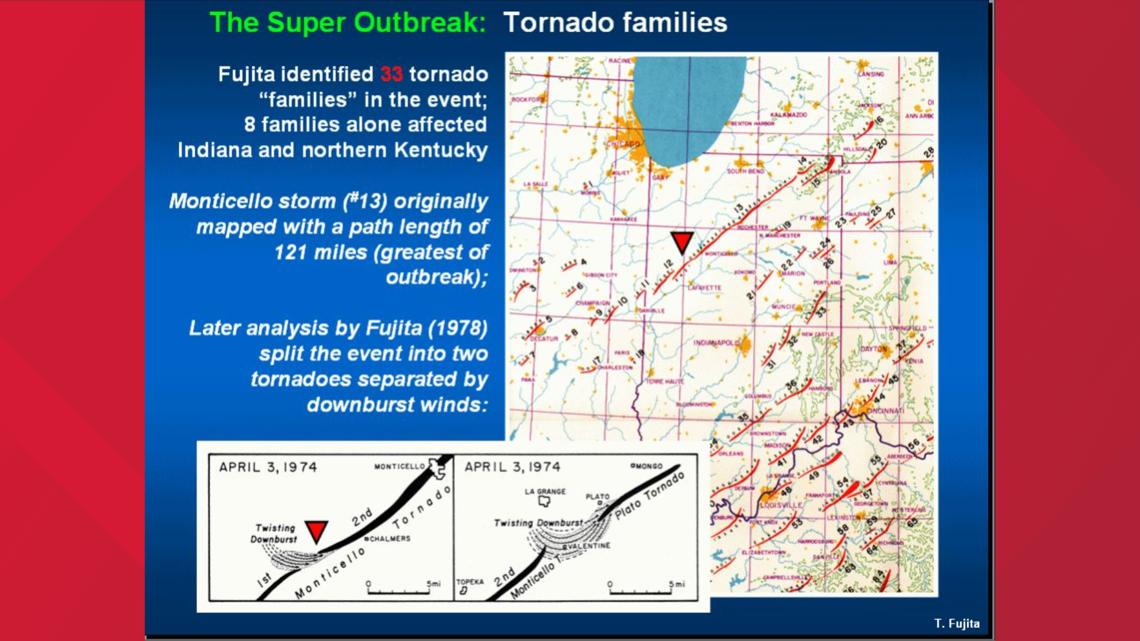

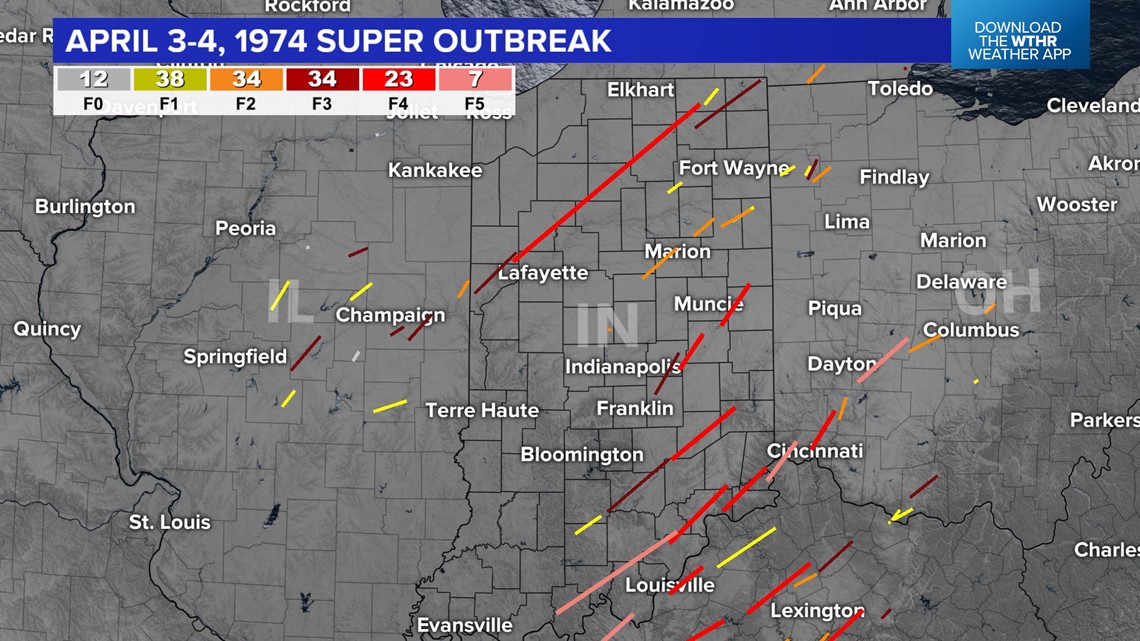
Indiana had several notable tornadoes from the event. The Monticello tornado had a damage path 109 miles long, which is the second longest in Indiana. It killed 18 people and disproved the myth that tornadoes couldn't cross bodies of water, as it flipped a bus off a bridge over the Tippecanoe River.

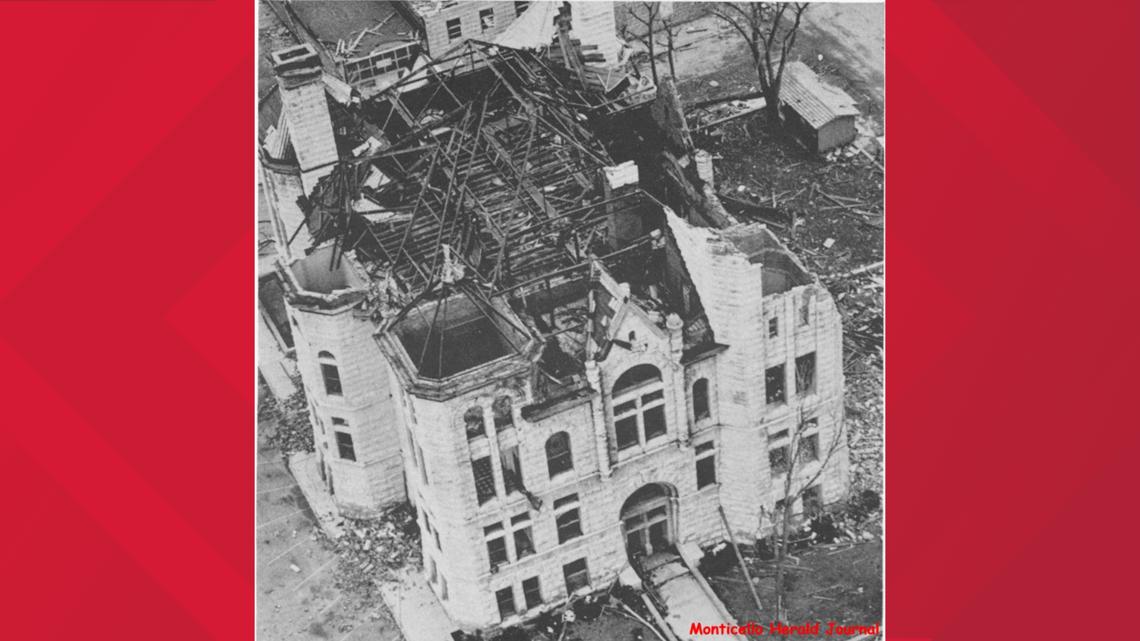
One of the F5s hit the southern Indiana towns of DePauw/Disney Hill, killing six. The Hanover College campus was heavily damaged by an F4 and its parent supercell would eventually spawn an F5 around the Cincinnati area.

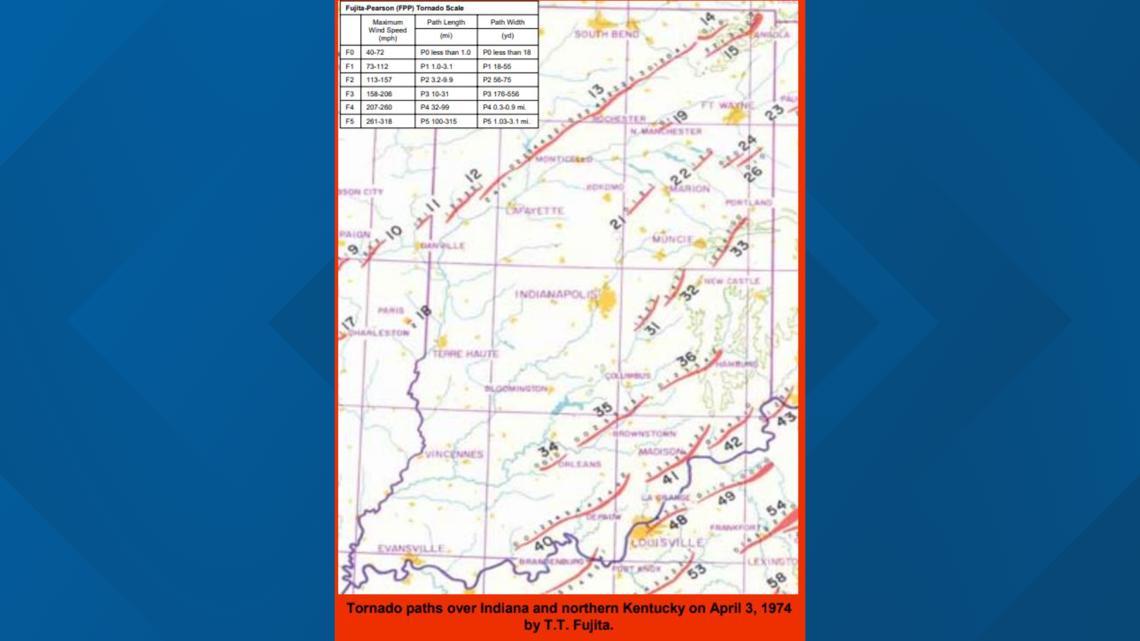
Also of note was the well documented F4 tornado that hit Parker City in eastern Indiana.

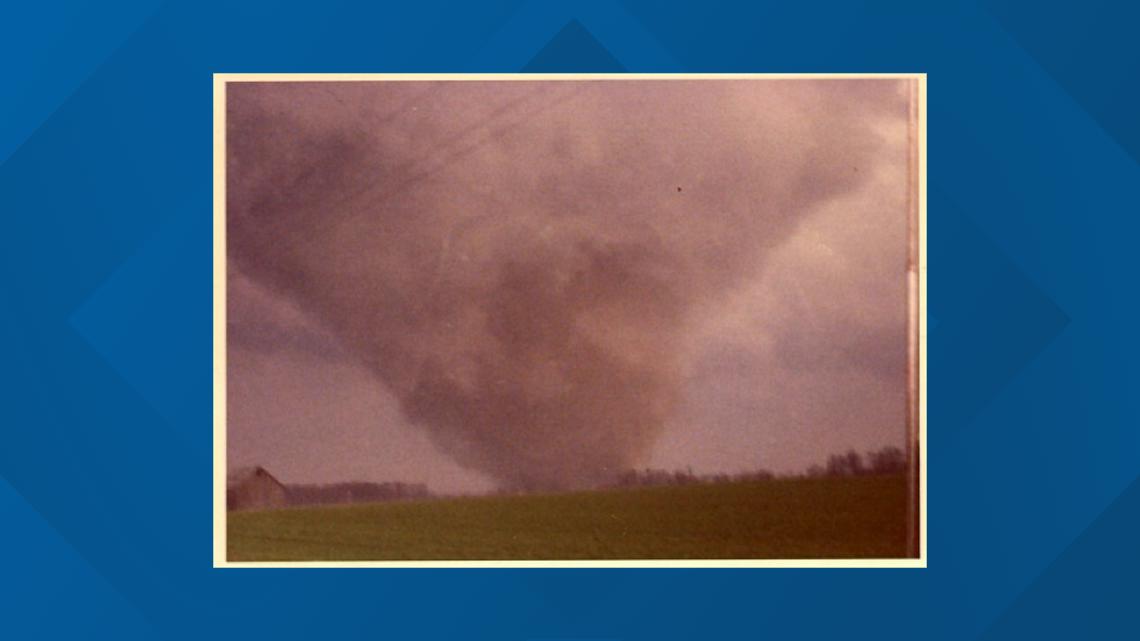

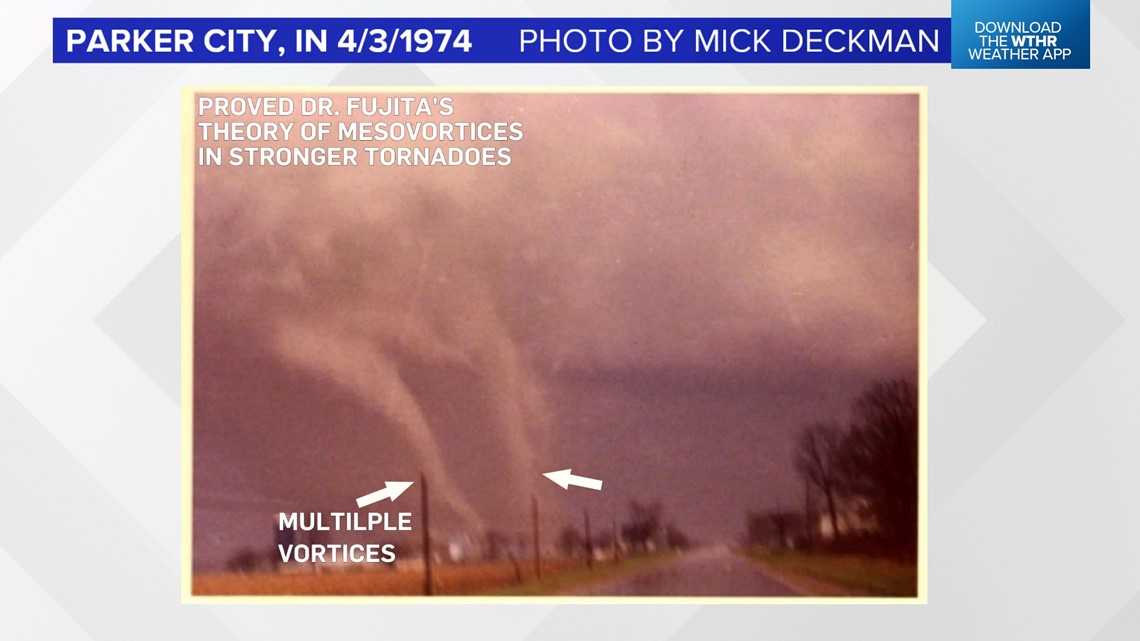
Video and still photography of this tornado proved Dr. Ted Fujita's (of the Fujita scale) multiple vortex theory, in which he believed large tornadoes sometimes have multi-vortices that move around the main rotation. You can learn more about the outbreak from the NWS Indianapolis office and the Storm Prediction Center.
Last, but not least, I will always remember the 335 lives lost on those dates. You'll never be forgotten.

